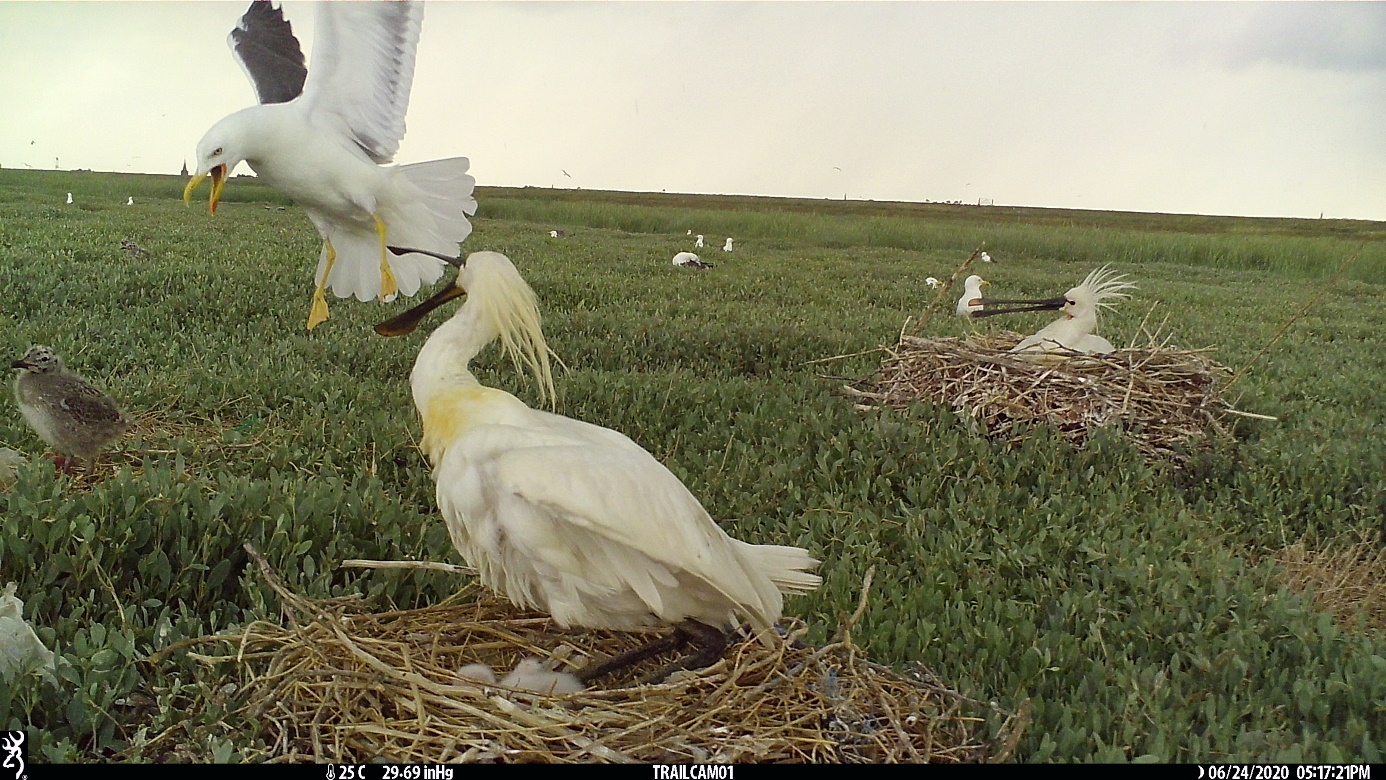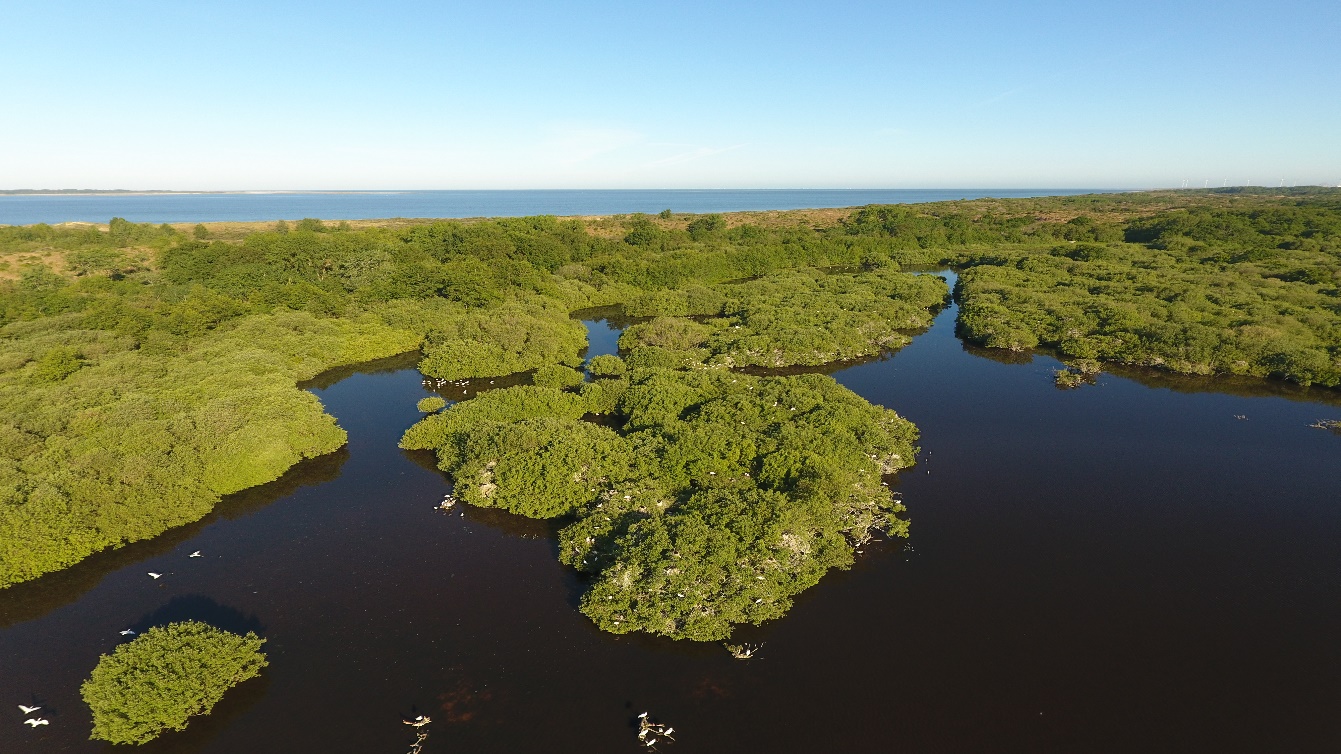What has 2022 brought to the Delta (Zeeland-Zuid Holland)? In 2022, spoonbills have been breeding in 19 different colonies in the Delta. The number of nests was at least 952 (in 2020 this was 773 nests) and the number of nests per colony varied from 1 to as many as 218.
Sloecolonie
It seems very likely that one of the oldest (and largest) colonies in the Delta, in the industrial Sloe area, has been abandoned for good. In the past, the port authority was busy making it as difficult as possible for the spoonbills, but in the end it was the fox that ensured that the spoonbills left (that is in any case a natural cause). Thanks to the ringed birds, we have been able to see that the birds from the Sloe colony have spread over various other colonies in the Delta. Two other colonies in the Delta have failed, one probably also due to fox predation and one most likely due to Lesser Black-backed Gull predation.

Photo: Mark Hoekstein
Flooding
The colony in the Western Scheldt has been flooded. Still, more than 27 young fledglings have been raised there.
Bird flu
Of course there was the fear of bird flu. In one of the first ring actions, that fear came true. On an island in the Krammer Volkerak, there were 111 nests in 4-5 clusters. In the first cluster where ringing would take place, there was a very large number of dead cubs (36!). From half-grown to almost fledgling chicks. One freshly dead specimen was taken for examination and it turned out to be bird flu H5N1. Fortunately, it turned out that the rest of the colonies did not show such mortality of young birds. It is true that bird flu was found in another 4 colonies, but this led to only a few victims. The sighting of a young ringed spoonbill that appeared to be almost dead, which was happily walking around again the next day (and hibernated in France), shows that the spoonbill can also recover from bird flu. Camera images with a drone of the island in the Krammer Volkerak then showed that the other clusters on the island were not affected.
Drone research
Drone research is on the rise. Firstly because it is less disruptive and secondly (of course) because it requires less effort. In the past, inventory of the Quackjeswater always led to totally exhausted people who had to struggle for hours through a swamp with obstacles, and now 2 people are looking at the images from behind their desk; result for the Quackjeswater: 160 nests of spoonbills; 76 from blue herons; 4 from great egrets and 313 from cormorants.

Quackjeswater - Photo: Kees Vliet Vlieland
All in all, despite the bird flu, it was not a bad year for the spoonbills in the Delta. We’ll see what 2023 brings us.

